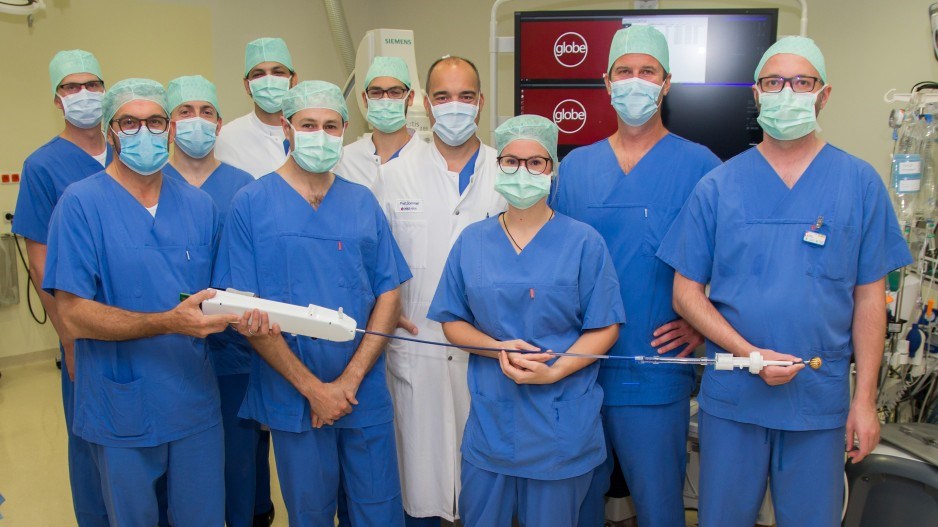It was during a summer dinner in Germany that Kevin Chaplin peered at a doctor he’d been working with that week and noticed a physical feature that had previously escaped him.
“He had a little goatee. And I thought, ‘I’m usually such an observant person and I didn’t put it together,’” recalled the CEO of Kardium Inc., a Burnaby-based medical device company.
“And then the next time I saw him, I realized exactly why: it’s because all my interactions with him for the whole week were with a mask on. I’d never seen his face.”
Medical face masks in business meetings, fist-bumps in lieu of handshakes and a tight social bubble among colleagues sharing a rental car were the standard for Chaplin, who had departed B.C. for Europe in August to oversee the launch of a tool aimed at more efficiently treating atrial fibrillation, a heart condition.
The European Union does not require Canadians to quarantine upon touching down.
But the EU’s favourable policy, one not afforded to countries like the U.S. and Russia, is creating advantages for Canadian firms looking to expand globally amid the pandemic.
Kardium’s Globe Mapping and Ablation System received European regulator approval on June 30, about two years later than the company originally anticipated.
The device, about one metre long, has a handle at one end to control it and a catheter with an array of electrodes at the other end. The catheter is inserted into the femoral vein via a needle in the patient’s groin area, and the device’s electrodes travel up to the heart.
The electrodes map the heart’s activity and then burn tissue inside to create scarring, stopping the bad electric signals and returning the heart to its normal rhythm.
Chaplin said trying to train doctors and nurses how to use the device without his team being on hand would have been akin to “trying to teach a pilot to fly an airplane over a Zoom call.”
“If we weren’t able to travel to Germany we would have had to delay the launch,” Chaplin told BIV while self-isolating in his basement upon returning to B.C.
“Being able to travel, actually having people there, was essential for us to do the launch.”
But the EU’s favourable policies towards Canadians haven’t been extended to travellers to the U.K.
Christian Thomson, CEO of Squamish-based Marwick Marketing Inc., found himself in an English cottage, self-isolating for 14 days in September after landing in the U.K. to expand his company’s presence across the Atlantic.
“The two options for agencies [during the pandemic] – one is to kind of hunker down and kind of hold their ground, or second is to kind of push forward into an opportunity,” he said. “The opportunity presented itself even more because a lot of the bigger clients that we would normally work with in Canada are in the U.K.”
The company’s operations base remains in B.C., while the new office will focus on business development within the new British market.
Thomson said the teams will have to deal with the eight-hour time zone gap, but he otherwise anticipates the expansion running smoothly as his workforce had been working flexible hours even ahead of the pandemic.
“Travel has been great,” said Olive Technologies Inc. CEO Chris Heard.
That’s because his tech startup has been able to cut its travel costs to near-zero during the pandemic and redirect to marketing as it aims to expand globally.
The company specializes in streamlining decision-making for IT products and services, reducing companies’ costs and the need for outside consultants.
Heard has spent much of the pandemic raising capital from international investors via Zoom sessions.
“Time zones – obviously a bit of a challenge. But that piece is not really impacting us too much,” Heard said.
“And so we don’t see the [return on investment] on getting on a plane, spending money in the first place. Take all that money for something else, and be at the risk of getting on a plane, potentially bringing COVID back. We don’t want to be doing that. So that’s the financial benefit and a genuine risk benefit for us.”




